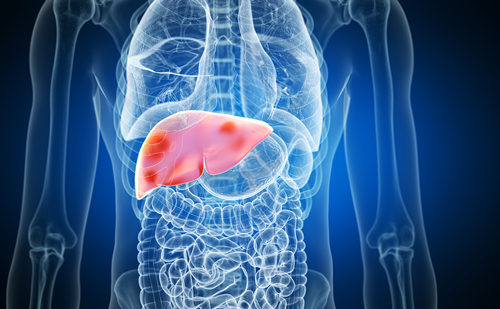Welcome to the latest edition of touchREVIEWS in Endocrinology. In this issue we feature a range of articles to keep you up to date with the latest discussions and developments in the field of medical endocrinology.
We start with an expert interview from the Founder and CEO of the Global Liver Institute, Donna Cryer, who delves into the misconceptions that can surround liver conditions and how these can be addressed. We then move into the realm of diabetes, starting with an editorial from Bhattacharya and Kalra, who deliver a concise overview of the American Association of Clinical Endocrinology 2022 consensus statement for type-2 diabetes mellitus (T2DM) management. Next, Dutta et al. explore the impact of enhanced external counterpulsation therapy on glycaemic control in prediabetes and T2DM. The topic of glycaemic control continues, with a discussion around glycaemic variability and effective treatment options from Alejanda et al. Then we continue in the arena of T2DM but shift our focus to early-onset disease. In particular, Arefin Sadat draws our attention to the recent literature on the incidence, mortality, morbidity and risk variables of early-onset T2DM, before discussing the current priorities and prospective directions.
Moving from diabetes, we then consider topics relating to adrenal, pituitary and thyroid disorders. We begin with a review from Pappachan et al. who provide a timely overview of endocrine hypertension and guidance into diagnosing and managing some of the disorders causing the condition. Next, Alexandraki et al. draw our attention to pituitary tumours. Although the majority of these tumours can be benign, some can be aggressive and difficult to treat. As such the authors focus their report on recently identified biomarkers that might have prognostic value for this subset of patients. The recent evidence surrounding an association between autoimmune thyroid disease and alopecia is the next topic explored; Alsiary et al. investigate this association and the potential mechanisms behind it. Braunstein et al. explore prepubertal gynaecomastia/premature thelarche and a possible link to topical lavender and tea tree oil. In our final review, Barbara DePree et al. reach into another discipline, reproductive endocrinology, with a review of a recently approved neurokinin 3 receptor antagonist for the treatment of vasomotor symptoms associated with the menopause.
The issue concludes with some original research. Nair et al. share the results from a single-centre study investigating factors associated with adverse outcomes in COVID-19-associated mucormycosis. Boro et al. then end the edition with a case of a parathyroid carcinoma presenting as a recurrent primary hyperparathyroidism and neck mass.
As always, we wish to thank all our contributors for their insightful articles. We are also grateful to all the organisations and society partners that we work with, and for the continued involvement and advice of our editorial board. We hope that you will find this edition informative and enjoyable.
Steve Bain
Professor Steve Bain is Assistant Medical Director for Research & Development for Swansea Bay University Health Board and Clinical Director of the Diabetes Research Unit in Swansea University.
After undergraduate training at St John’s College, Cambridge, he was clinically trained at King’s College Hospital, London. Qualifying in 1983, he held junior appointments in London, East Midlands, and West Midlands. His research centred on the genetics of type 1 diabetes, and he was granted a Medical Research Council Lectureship. In 1993, he became a Senior Lecturer/Honorary Consultant Physician at Birmingham Heartlands Hospital, with promotion to Reader in Diabetic Medicine in 1998. Professor Bain became a Fellow of the Royal College of Physicians, UK, in 1996 and was appointed to a newly created Chair in Medicine (Diabetes) at Swansea University in 2005. His clinical interests include the genetics of diabetic nephropathy, new therapies for diabetes and the provision of diabetes services within the community. He has been Chief Investigator for several multicentre trials investigating novel therapies for diabetes.
As a result of his genetics background, Professor Bain became a member of the inaugural West Midlands Multicentre Research Ethics Committee (MREC) and joined the UK Human Genetics Commission. From 2003 to 2008 he was HGC’s nomination on the National DNA Database Strategy Board and led the HGC report on DNA testing in 2009. In 2007 he was invited to sit on the newly formed National DNA Database Ethics Group, established by the Secretary of State for the Home Department. Professor Bain is Diabetes Lead Clinician for Swansea Bay University Health Board, a member of the Wales Diabetes & Endocrine Society (WEDS) executive committee and chaired the Specialist Training Committee for Diabetes & Endocrinology for Wales until 2016. He also chairs the Board that oversees the ILS Joint Clinical Research Facility, the premier clinical research institute in Wales.







